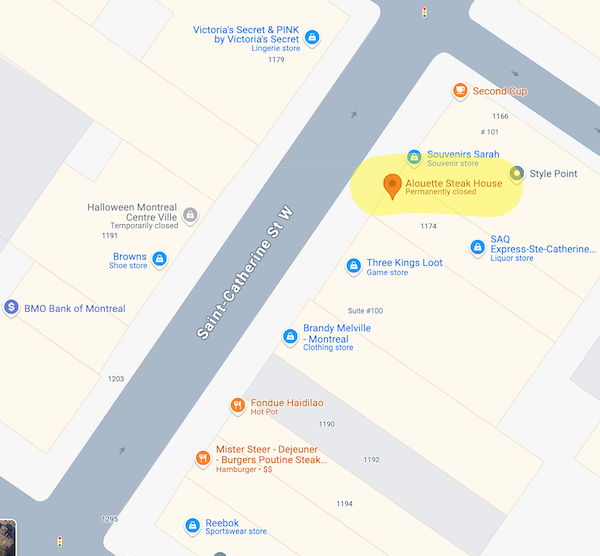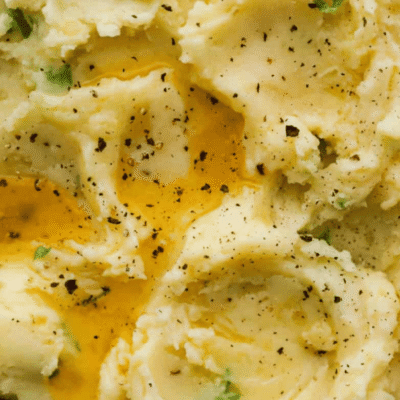By Lambert Strether of Corrente
This is Naked Capitalism fundraising week. 201 donors have already invested in our efforts to combat corruption and predatory conduct, particularly in the financial realm. Please join us and participate via our donation page, which shows how to give via check, credit card, debit card, PayPal, Clover, or Wise. Read about why we’re doing this fundraiser, what we’ve accomplished in the last year, and our current goal, strengthening our IT infrastructure.
Everyone you meet is fighting a battle you know nothing about. Be kind. Always. –Apocryphal, attributed to Robin Williams
This week is a very serious week at Naked Capitalism, so I thought I would switch things up and present you, readers, with an amuse-bouche, the sort of old school blogging post where I start out not knowing where I will end up.
Not to knock my mother’s cooking, but it was American-style from women’s magazines in the 1950s (meatloaf, creamed peas, jello): well-planned, nutritious, even, but not cuisine. I learned to eat late in life, in my mid-30s, in Montreal, where I had come for a TeX conference at McGill — I was a desktop publisher several careers ago — and when the program had ended for the day, I walked down the Mountain toward Ste Catherine’s street, and wandered into a random steakhouse, because I thought I would treat myself.
The steakhouse was the Alouette Steak House. The warm room was full of solid provincial bourgeoisie, tucking in. From the menu — exotically in both French (large type) and English (small type) — I selected steak au poivre with frites, escargot for an apetizer, and a carafe of red wine (considering the room, “I’ll have what they’re having”). The air outside was crisp; inside, the windows were steamy. The plump chef, in his white toque, seared the steaks on a rotating grill, presumbly for speed. The bread, wine, and the escargot arrived; I had never encountered a plate with hemispherical convexities to hold snails, which were garlicky, soaked in oil, and could not quite be said to be tough. I polished them off, soaked up the garlic and oil with the bread, and cut the oil and the garlic with a gulp of wine. The steak arrived, crusted with peppercorns, slathered in cream sauce. I sawed off a hunk….
My whole mouth was happy. My whole body was happy. I don’t know why this never happened before, but it did. As you can see, this was a madeleine moment for me. Bourdain is an actual food writer, unlike me and far better, and here is his madeleine moment, which happened to him when he was much younger than I was then. From Kitchen Confidential (2000), pp. 18-19:
We’d already polished off the Brie and baguettes and downed the Evian, but I was still hungry, and characteristically said so. Monsieur Saint-Jour, on hearing this-as if challenging his American passengers-inquired in his thick Girondais accent, if any of us would care to try an oyster.
My parents hesitated. I doubt they’d realized they might have actually to eat one of the raw, slimy things we were currently floating over. My little brother recoiled in horror.
But I, in the proudest moment of my young life, stood up smartly, grinning with defiance, and volunteered to be the first.
And in that unforgettably sweet moment in my personal history, that one moment still more alive for me than so many of the other ‘firsts’ which followed—first joint, first day in high school, first published book, or any other thing—I attained glory. Monsieur Saint-Jour beckoned me over to the gunwale, where he leaned over, reached down until his head nearly disappeared underwater, and emerged holding a single silt-encrusted oyster, huge and irregularly shaped, in his rough, clawlike fist. With a snubby, rust-covered oyster knife, he popped the thing open and handed it to me, everyone watching now, my little brother shrinking away from this glistening, vaguely sexual-looking object, still dripping and nearly alive.
I took it in my hand, tilted the shell back into my mouth as instructed by the by now beaming Monsieur Saint-Jour, and with one bite and a slurp, wolfed it down. It tasted of seawater . . . of brine and flesh . . . and somehow . . . of the future.
Everything was different now. Everything.
I’d not only survived—I’d enjoyed.
This, I knew, was the magic I had until now been only dimly and spitefully aware of. I was hooked. My parents’ shudders, my little brother’s expression of unrestrained revulsion and amazement only reinforced the sense that I had, somehow, become a man. I had had an adventure, tasted forbidden fruit, and everything that followed in my life-the food, the long and often stupid and self-destructive chase for the next thing, whether it was drugs or sex or some other new sensation-would all stem from this moment.
I’d learned something. Viscerally, instinctively, spiritually—even in some small, precursive way, sexually—and there was no turning back. The genie was out of the bottle. My life as a cook, and as a chef, had begun.
Food had power.
It could inspire, astonish, shock, excite, delight and impress. It had the power to please me . . . and others. This was valuable information.
I was dining in solitary splendor, and so experienced the aesthetics only; not power, as did Bourdain (for good or ill). Sadly, the Alouette Steak House is gone now:

Gone like so much else downtown. I moved on to much more upscale eateries, though I do not think at that time celebrity chefs were a thing; everything was still innocent, still about the food. I discovered tasting menus, seven courses of tiny delicious morsels, and menus that specified ingredients like “Monsieur Fortier’s greens,” which was great, because local! I was supporting a farm! (In fact, one of the best meals I ever ate was in my home town in Maine, where the cook created a Slow Food dinner, all from local ingredients (so any town can do it)). I also learned to deprecate the American practice of surrounding a great slab of meat with sides; at that time, in Montreal at least, meat and vegetables were equally important on the plate, and designed to complement and reinforce each other.
On reflection, rereading my own experience in Montreal, I see that with “the bread… arrived,” I have fetishized the bread and made it into an active agent; in fact, a serveur brought me my food. Bringing us to one of many Bourdain reflections on staff. Again from Kitchen Confidential, pp 208-209:
I guess it was a historic moment.
[Steven] showed up looking for a sauté position, his even more degenerate friend Adam Real-Last- Name-Unknown in tow….
When Steven and Adam were in the kitchen together, I couldn’t turn my back for a second. They were hyperactive and destructive, two evil Energizer bunnies who, when they weren’t squabbling and throwing food at each other, seemed always to be dodging out of the kitchen on various criminal errands. They were loud, larcenous, relentlessly curious—Steven can’t look at a desk without rifling its contents; they played practical jokes, and set up whole networks of like-minded co-workers. A few weeks after he arrived, Steven already had the whole club wired from top to bottom: the office help would tell him what everyone else was getting paid, security would give him a cut of whatever drugs they impounded at the door, and the techies let him play with the computers…. Maintenance gave him a share of the lost-and-found and split the leftover booty from the promotional events-goody bags filled with cosmetics, CDs, T-shirts, bomber jackets, wrist- watches, etc.; the chief of maintenance even gave Steven the key to a disused office on the Supper Club’s neglected third floor, an old janitor’s storage room that, unbeknownst to management, had been converted to a carpeted, furnished and fully decorated pleasure pit, complete with working phone. It was a space suitable for small gatherings, drug deals and empire-building. [The room] had been done up with pilfered carpet remnants and furniture from the adjoining Edison Hotel. As the space was located up a long flight of garbage-strewn back stairs, behind the reeking locker-rooms, down a dark, unlit hall where spare china was stored, management never visited—and a young man could be secure in the knowledge that whatever dark business he was conducting, no matter how loud, unruly or felonious, he was unlikely to be disturbed.
The boy could cook, though.
The sort of delicious office politics I learned at my father’s knee…
Kitchen Confidential made Bourdain into a celebrity and then a TV star, but I’m going to skip over all that and present three short video clips that show how much he loved food (and delicious food that locals could eat, for not much money, unlike my excessive and precious tasting menus). From San Francisco, the Swan Oyster House:
“All that good stuff. Brains, and fat….”
From Camden, New Jersey, Donkey’s place:
Bourdain’s “Really!” after learning this cheese steak is served on a Kaiser roll is priceless.
From Vietnam, a food cart:
“All the things I need for happiness.”
I think a common factor in all these videos is Bourdain’s respect for the people who made the food, which infuses Kitchen Confidential, despite the bravura Hunter Thompson-eque passage I quoted on office politics. Let me quote Chris Arnade, who in his columns (and book) on walking the world, here seems to follow the master, Bourdain:
While walking for two weeks in Lima, I ate a lot of ceviche, and drank a lot of Pilsen Callao (sorry, Pilsen is better than the better known Cusqueña, and cheaper).
Because everyone in Lima is hustling, since the city hasn’t been taken over by franchises, you can eat from hundreds of places, each a little different. Stands, stalls, carts, and store fronts all serve food, all made that day, or the night before.
Franchising lowers the risk of what you eat, but by lowering quality. While you know what you are going to get, it will be pretty mediocre.
It also destroys the transcendent. To steal from Walter Benjamin and his “The Work of Art in the Age of Mechanical Reproduction,” getting your hamburger put together in minutes from a chain removes any aura around making and eating food.
That isn’t the case when you are one foot away from three women making ceviche with fish from two fish sellers a stall over.
All of whom get immense pride out of doing it. The dignity of work is an overused phrase, but the meaning that comes from making something special, even if it is “only” ceviche, or Aguadito De Pollo, is a real thing.
So I prefer taking the gamble of having a few bad moments, to find the truly sublime, and in a tiny way, capture part of that aura. I also prefer giving my money to the people doing the creation.
I am sure Bourdain would agree with this, as do I!
I was wrong in the lead. We all know where we will end up, later, one hopes, rather than sooner. Sadly, Anthony Bourdain took his own life, strange for someone who was so full of life (especially when eating, as the videos show). Celebrity is bad for people; wealth is bad for people; but we do not and cannot know what internal battle Bourdain was fighting, no matter how much through gossip we attempt to anatomize the mysterious (most things in life that are important being mysterious, after all). With James’s Lambert Strether I would say: “Live all you can. It’s a mistake not to.” So eat as well as you can, respect the workers who create the food you eat, and try to be kind.
APPENDIX Seafood Stew
Since this clip is famous, here is Bourdain over-simplifying Collaterized Debt Obligations (CDOs) in The Big Short. Horrid book, horrifying movie (at least to a financial layperson):
For the straight dope on CDOs, see Yves here in 2010 for the correct technical explanation from an expert. That said, “It’s not old fish, it’s a whole new thing! And the best part is they’re eating three day-old halibut” does seem to apply in our financialized economy, and not just to financial products. One might consider AI training sets to be a seafood stew, for example.






